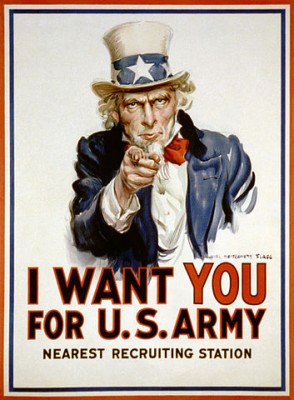 One of the first (and most important) stages of the hero’s journey is the call to adventure. It happens when the hero first confronts something outside the experience of his ordinary world that beacons him to leave it. It overlaps closely with the inciting incident, and marks the point at which the hero’s journey begins.
One of the first (and most important) stages of the hero’s journey is the call to adventure. It happens when the hero first confronts something outside the experience of his ordinary world that beacons him to leave it. It overlaps closely with the inciting incident, and marks the point at which the hero’s journey begins.
However, it is not typically where the story begins. In order for the hero to leave the ordinary world, he must first start out there, so we know what’s at stake and what he’s leaving behind. This is why Luke Skywalker starts out on his uncle’s homestead, and why Neo starts out as a bored and lonely employee of Metacortex. Events outside the hero’s experience may have already put him on a trajectory to leave on the adventure, but he won’t know it until the call comes.
The hero may start out in a quiet, peaceful village, far removed from any sort of conflict–or he may start out in the middle of a crapsack world, as is the case with dystopian fiction. The important thing is that it’s the world he’s always known–that he hasn’t ever really made an effort to leave or change it.
How he feels about his world largely determines how he chooses to respond to the call. In older literature, the hero typically refuses it. The advantage of this is that it gives the reader a sense of scope–that this adventure is not a small or a trivial thing. It also sets up an immediate minor conflict that gives some motion to the opening chapters.
In modern stories, though, it’s more common for the hero (or his friends) to jump at the call. There are also many advantages to this. In Lord of the Rings, it gives Frodo an immediate band of sidekicks. In Harry Potter, it plays up the sense of wonder at the magical world. In the Chronicles of Prydain, it highlights the impulsiveness and naivete of Terran, as he realizes later on in the story just how stupid of him it was.
The call itself can take many forms. It can come as a fateful visitation from a supernatural messenger, a mysterious request from a dying stranger, or a sacred trust from a dying friend. It can also be more internal, such as an important moment of decision, or a desire to find some greater purpose in life. Whatever the case, the one thing the hero cannot do is ignore it–at least, not forever. One way or another, the hero sets out, and the adventure begins.
Love the overview of Campbell, nice blog too. Will stop back often.
Dave
Awesome! Thanks for stopping by!